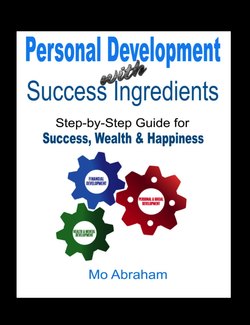Читать книгу Personal Development With Success Ingredients - Mo Abraham - Страница 6
На сайте Литреса книга снята с продажи.
The Formula for Success
ОглавлениеLet’s take sales and sales people as examples since this is my core competency, which can also be applied to virtually any field and profession.
Almost all professional salespeople follow a specific pattern in their learning curve. In the beginning, whether by talent, hard work, good training, or plain luck, they progress rapidly: new ideas, new clients, exciting concepts. Success. But then the learning curve slows – a lot. Gradually, they may make a marginal improvement. Keep on doing what you’re doing. Work a little harder. Plan a little better. Build the database of customers a little more. Pick up an extra client here or there to compensate for the lost accounts. Boring, but effective if your market doesn’t change.
But, there’s a much more effective way! Reading this book and other good books will allow your thoughts and techniques to progress exponentially.
Almost all salespeople, even the most successful ones, only half learn their business! For example, suppose there were ten good ways to obtain new clients, and a new salesman was taught four of those ways by his boss. Suppose he discarded one as ineffective, which left him with three ways to generate new accounts. Those three worked, and he used them to make more money than he’d ever made before in his life! Would he be motivated to find and learn the other six ways? Or would he think he ‘knew it all?’
Let’s take another example. Suppose a new salesman started in a strong economic climate and learned and practiced what he was taught. He went on to fame and fortune and became highly successful doing what he’d been taught. Then the market changed, and his billings dropped significantly.
Would he go way back to the beginning, analyzing each step of the process to determine what changes he should make in methodology to reflect a difference in his market? Or would he keep hammering away, working harder, longer, possibly better, but utilizing the same techniques he had always used?
We could walk through many examples just like this. And you know the answers to all of them.
Most salesmen – especially the experienced ones – learn just enough to get by and do well. After that, the improvement becomes slow, gradual and freezing.
At some point in the development of any sales business, a point is reached where the learning curve starts to slow. Call it stagnation or maturity, the developments of new sales techniques and management developments within the firm ceases to progress. If this is not corrected, profits will also slow. Staff turnover increases. No one has much fun. The organization becomes a dull place in which to be.
The salesman who has reached or is approaching this point cannot allow this to continue. He/she has essentially three options to recapture the vibrant enthusiasm that is the hallmark of a successful and growing individual:
1.He/she could get together with others for an open exchange of information and brainstorming. John Dryden, an English author, wrote “I have no wish to be with others like myself. I only gain by being with those who know more.”
2.He/she could arrange for an industry-specific trainer and management consultant. Many believe it is a viable choice to increase knowledge and profit.
3.He/she could, like Newton, stand on the shoulders of the giants that have come before him.
There are dozens of specific and effective techniques to explode your production. I’ve learned and applied these techniques for over 25 years using the formula for success!
